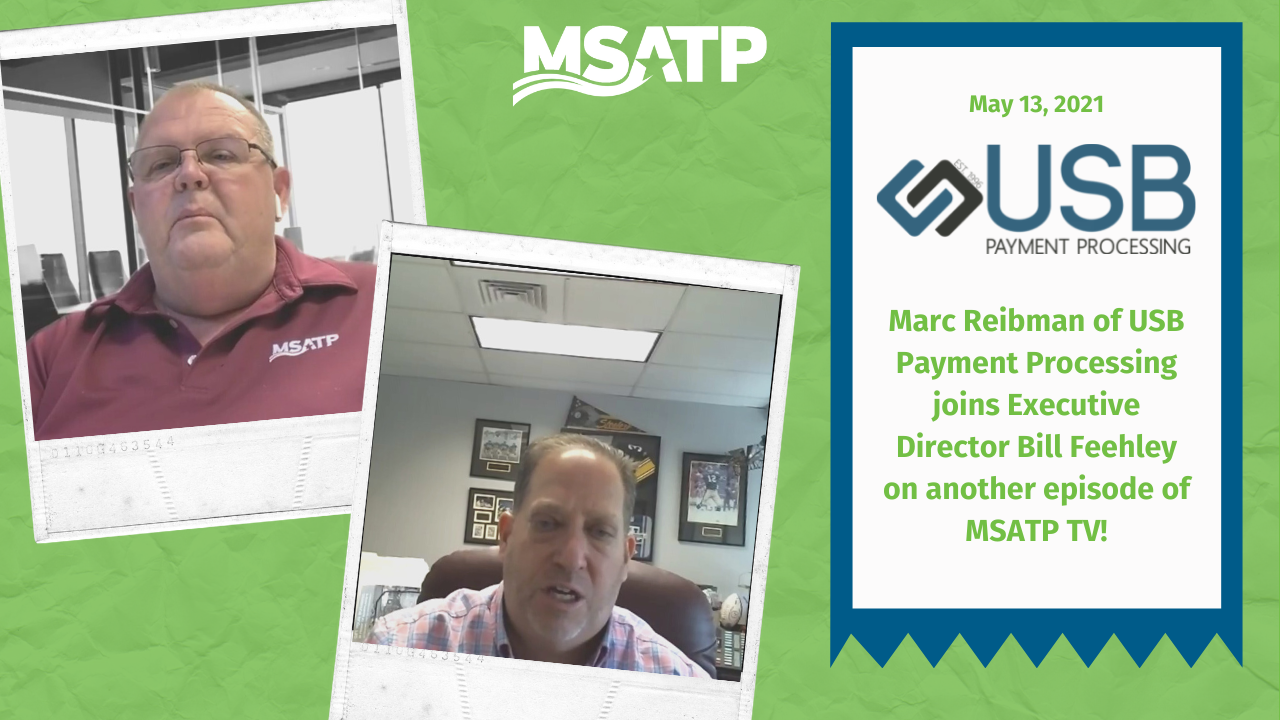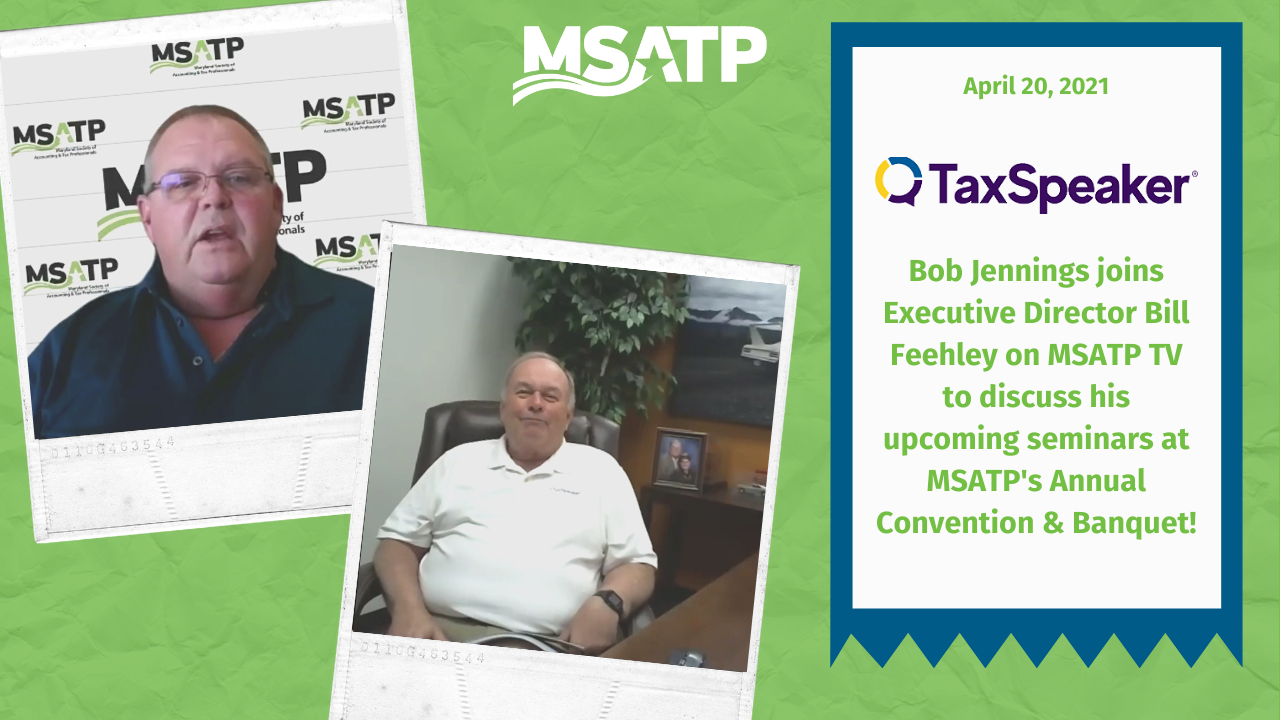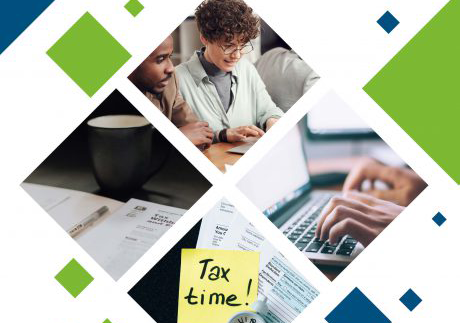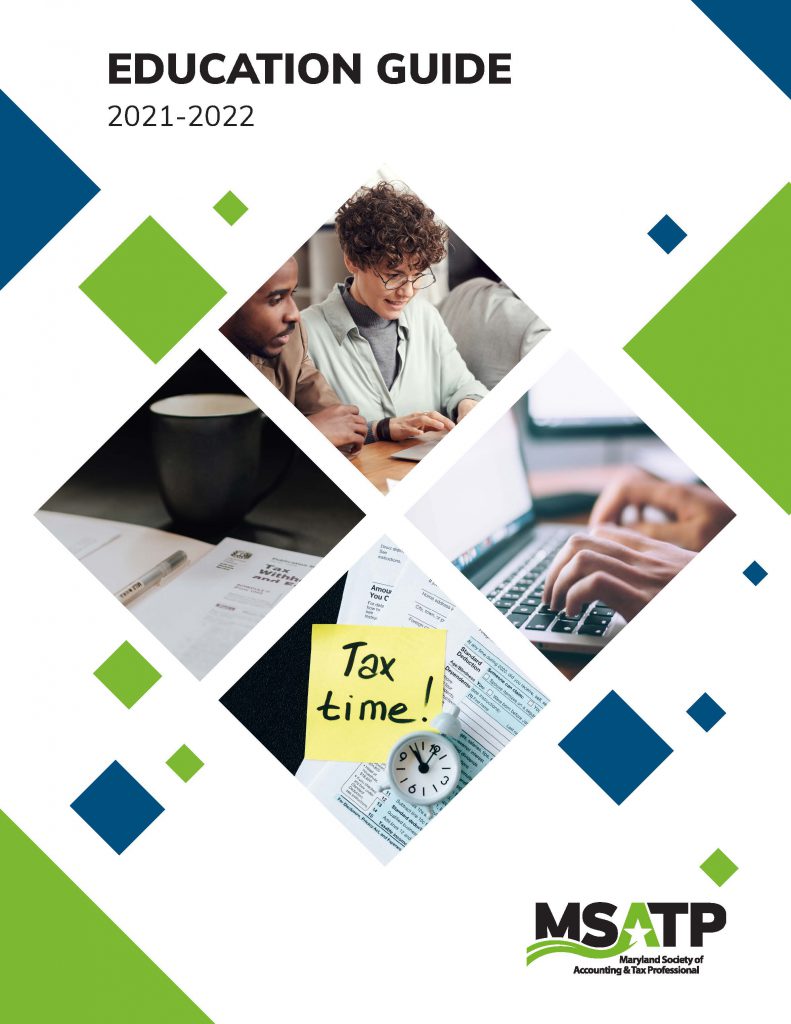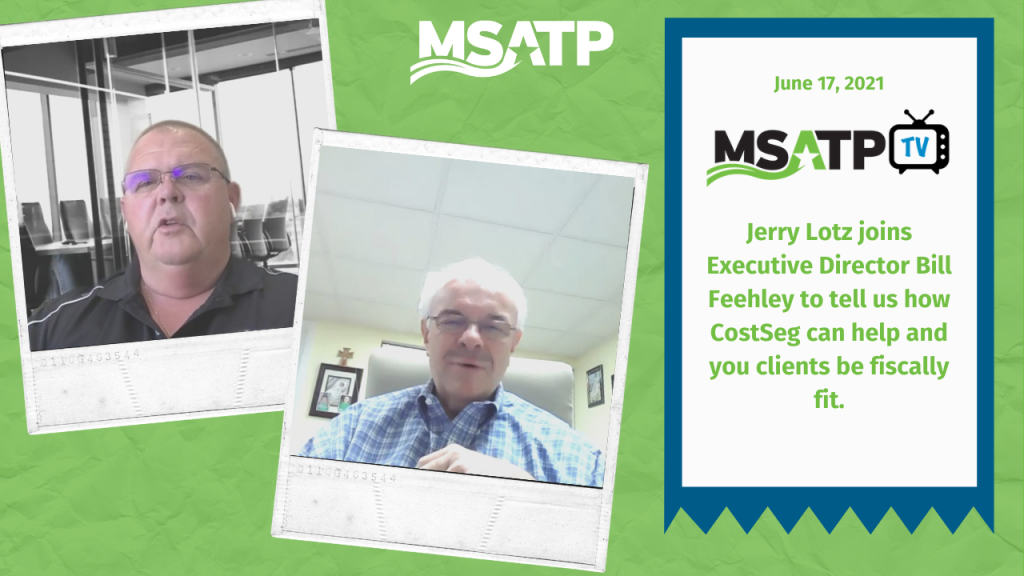
On this weeks’ episode of MSATP TV, Jerry Lotz join Executive Director Bill Feehley to tell us how CostSeg can help and you clients be fiscally fit.
Watch on YouTube.
Coming Up: On Thursday, June 24 at 10 a.m., Michael Ashley of Registered Agents will be joining us to discuss how he can help you and your clients incorporate a business, form a limited liability company, or for other incorporation needs in all 50 states! Like/Follow us on Facebook to see this episode and more!
Update on Mandatory Electronic Filing for Form 4720 by Private Foundations
Section 3101 of the Taxpayer First Act requires certain exempt organizations to file information and tax returns electronically for tax years beginning after July 1, 2019. Private foundations required to file Form 4720, Return of Certain Excise Taxes Under Chapters 41 and 42 of the Internal Revenue Code, are included in the electronic filing mandate. Pending conversion of Form 4720 to electronic format, the IRS continued to accept the 2019 tax-year version of this return on paper. While software for the electronic version of Form 4720 has been under development, the IRS also continued to accept the 2020 tax-year version of Form 4720 from private foundations on paper. See Notice 2021-01, 2021-2 I.R.B. 315.
For more information, please click here.
IRS Unveils Online Tool to Help Low-Income Families Register for Monthly Child Tax Credit Payments | IR-2021-129
The Treasury Department and the Internal Revenue Service unveiled an online Non-filer Sign-up tool designed to help eligible families who don’t normally file tax returns register for the monthly Advance Child Tax Credit payments, scheduled to begin July 15.
This tool, an update of last year’s IRS Non-filers tool, is also designed to help eligible individuals who don’t normally file income tax returns register for the $1,400 third round of Economic Impact Payments (also known as stimulus checks) and claim the Recovery Rebate Credit for any amount of the first two rounds of Economic Impact Payments they may have missed.
For more information, click here.
New FAQs Available to Aid Families and Small Business Under the American Rescue Plan | IR-2021-128
The Internal Revenue Service today posted two new, separate sets of frequently-asked-questions (FAQs) to assist families and small and mid-sized employers in claiming credits under the American Rescue Plan (ARP).
Both the child and dependent care credit as well as the paid sick and family leave credit were enhanced under the ARP, enacted in March to assist families and small businesses with the fallout of the COVID-19 pandemic and recovery underway. The two sets of FAQs provide information on eligibility, computing the credit amounts, and how to claim these important tax benefits.
For more information, click here.
Filing Payroll Taxes Electronically Makes Good Sense | Tax Tip 2021-86
Running a business with employees can be hard work. One way business owners can make things a little easier on themselves is by filing payroll and employment taxes electronically. There are several benefits to filing these forms electronically:
- It saves time.
- It’s secure and accurate.
- The filer gets an email to confirm the IRS received the form within 24 hours
There are two convenient ways businesses can e-file:
- Employers submitting the forms themselves will need to purchase IRS-approved software. There may be a fee to file electronically. Also, the software will require a signature by one of two ways:
- The software instructs the user to apply for an online signature PIN.
Taxpayers should allow at least 45 days to receive their PIN.
- The user can scan and attach Form 8453-EMP, Employment Tax Declaration for an IRS e-file Return.
- Employers can have their tax professional file the form for them. The Authorized IRS e-file Providers for Individuals and Businesses can help employers locate an Electronic Return Originator near them.
For more information, click here.
Facts to Help Taxpayers Understand Backup Witholding | Tax Tip 2021-85
Backup withholding is a federal tax on income that otherwise typically doesn’t require tax withholding, such as 1099 and W2-G income. Taxpayers who receive this type of income may have backup withholding deducted from their payments.
Here are some basic facts about backup withholding.
Backup withholding is required on certain nonpayroll amounts when certain conditions apply.
The payer making such payments to the payee doesn’t generally withhold taxes, and the payees report and pay taxes on this income when they file their federal tax returns. There are, however, situations when the payer is required to withhold a certain percentage of tax to make sure the IRS receives the tax due on this income.
For more information, click here.
News from the Justice Department’s Tax Division
The United States has filed a complaint in the U.S. District Court for the Middle District of Georgia, Macon Division, seeking to bar Shondre D. Pitts, an Irwinton, Ga., tax return preparer, from preparing tax returns for others. The civil complaint against Pitts alleges he has a long history of preparing fraudulent returns and, as a result, his customers may face large income tax debts and may be liable for penalties and interest.
Hildares Kinkesha Parker-Greene, a Kinston, N.C., return preparer, was sentenced to 30 months in prison for conspiring to file false tax returns for her clients. In addition to the term of imprisonment, Parker-Greene has been ordered to serve three years of supervised release and pay $442,576 in restitution to the IRS.
Herbert E. Lewis, a Georgia certified public accountant, has been charged with one count of conspiracy to defraud the United States, 24 counts of wire fraud, 32 counts of aiding or assisting in the preparation of false federal tax returns and five counts of filing false federal tax returns. If convicted, Lewis faces a statutory maximum sentence of 20 years in prison for each count of wire fraud, five years in prison for conspiring to defraud the United States, three years in prison for each count of filing a false tax return and three years in prison for each count of aiding and assisting in the preparation of a false tax return. He also faces a period of supervised release, monetary penalties and restitution.







